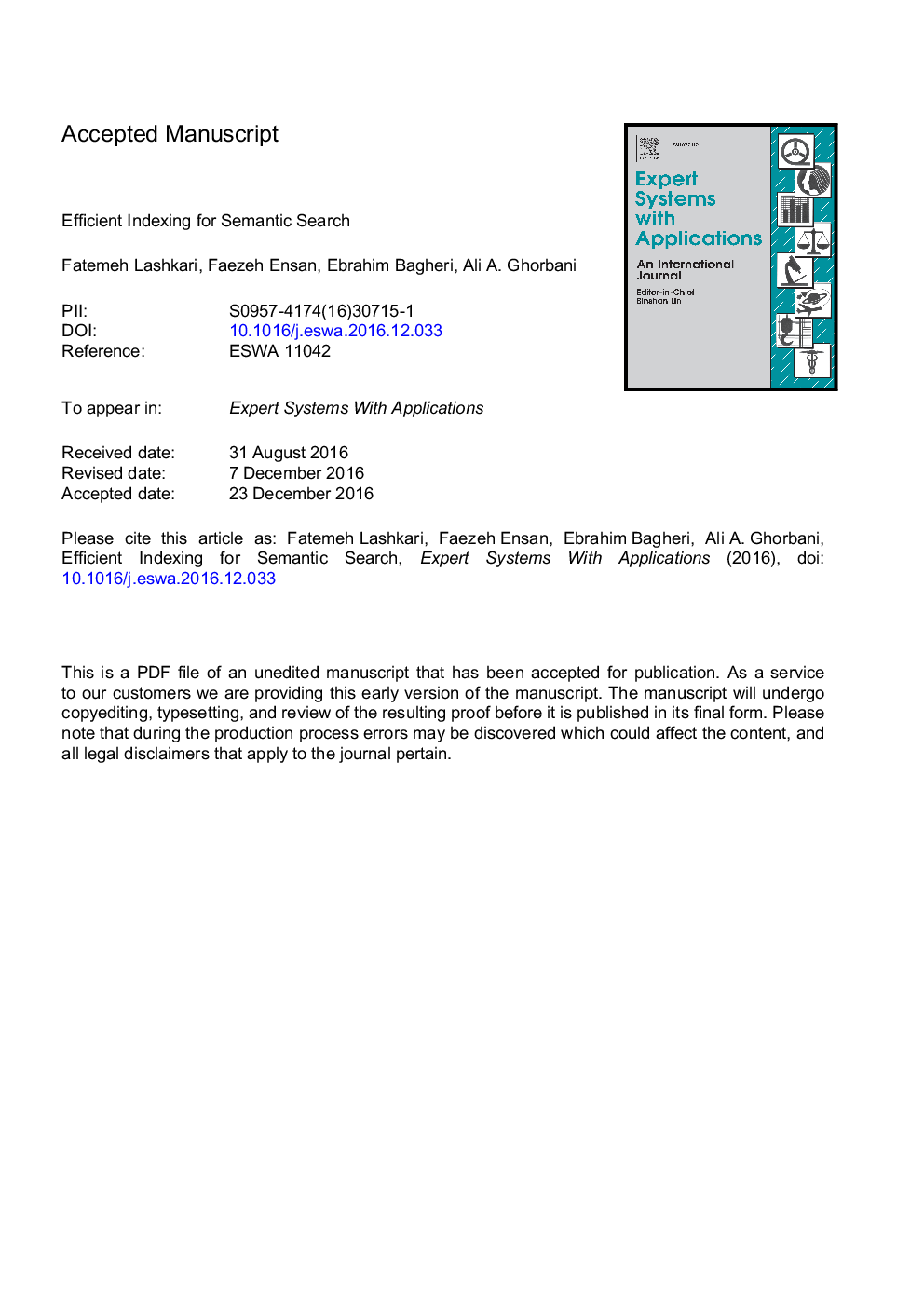| Article ID | Journal | Published Year | Pages | File Type |
|---|---|---|---|---|
| 4943477 | Expert Systems with Applications | 2017 | 44 Pages |
Abstract
The increasing performance and wider spread use of automated semantic annotation and entity linking platforms has empowered the possibility of using semantic information in information retrieval. While keyword-based information retrieval techniques have shown impressive performance, the addition of semantic information can increase retrieval performance by allowing for more accurate sense disambiguation, intent determination, and instance identification, just to name a few. Researchers have already delved into the possibility of integrating semantic information into practical search engines using a combination of techniques such as using graph databases, hybrid indices and adapted inverted indices, among others. One of the challenges with the efficient design of a search engine capable of considering semantic information is that it would need to be able to index information beyond the traditional information stored in inverted indices, including entity mentions and type relationships. The objective of our work in this paper is to investigate various ways in which different data structure types can be adopted to integrate three types of information including keywords, entities and types. We will systematically compare the performance of the different data structures for scenarios where (i) the same data structure types are adopted for the three types of information, and (ii) different data structure types are integrated for storing and retrieving the three different information types. We report our findings in terms of the performance of various query processing tasks such as Boolean and ranked intersection for the different indices and discuss which index type would be appropriate under different conditions for semantic search.
Related Topics
Physical Sciences and Engineering
Computer Science
Artificial Intelligence
Authors
Fatemeh Lashkari, Faezeh Ensan, Ebrahim Bagheri, Ali A. Ghorbani,
